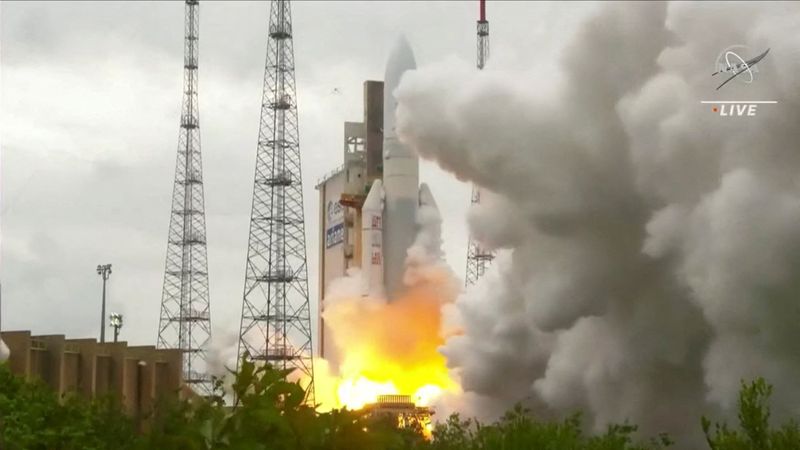Investing.com’s stocks of the week
By Akash Sriram
(Reuters) - Investments in space startups stayed flat in the second quarter, a positive sign for a sector that faced a funding slump over the past few quarters due to the grim economic outlook, a report by venture capital firm Space Capital showed.
The April-June period saw $6 billion in investments in 91 firms, compared with $2.2 billion in the previous three months and $5.9 billion a year earlier, the report, released on Monday, stated.
That marks a big improvement from declines of 53% and 52% in the first quarter and 2022, respectively. Still, at $8.2 billion spread across 183 companies in the first half of 2023, the figure is 41% lower than the same period a year ago.
"The era of free money is over and companies are beginning to adapt to this new normal," Space Capital said, adding that the pickup in financial markets has helped the space industry.
Signs of cooling U.S. inflation, upbeat economic data and expectations that the Federal Reserve could be nearing the end of its rate-hiking cycle have lifted shares in recent months, with the Nasdaq posting its strongest first-half performance in 40 years.
Yet, investors seem to be sticking with safer bets in the space industry, such as space imagery and analytics firms that have early pathways to revenue, unlike more risky investments in the rocket manufacturing sector.
Like other industries, artificial intelligence is also emerging as a buzzword in the space industry, but the technology is not new to the sector. AI is widely used to analyze images and data gathered by satellites and collect geo-spatial intelligence.
"GEOINT is the largest initial market for AI, and we will see continued growth in this sector over the coming quarters," said the VC firm's managing partner, Chad Anderson.
